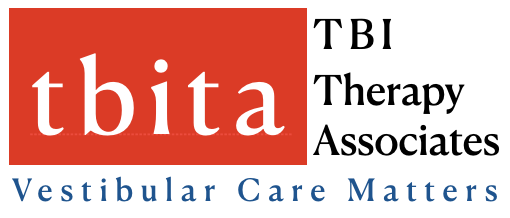
DIZZINESS IN TBI
Treatment of Dizziness
The treatment of dizziness is guided by its underlying cause, which is identified through a comprehensive evaluation by a vestibular specialist. Common treatment options for dizziness include:
Vestibular Rehabilitation Therapy (VRT): VRT is a specialized physical therapy designed to enhance balance, reduce dizziness, and improve functional mobility in individuals with vestibular disorders. It involves exercises and manoeuvres aimed at promoting adaptation, habituation, and compensation for vestibular deficits.
Canalith Repositioning Manoeuvres: Manoeuvres like the Epley or Semont are used to treat benign paroxysmal positional vertigo (BPPV). They involve specific head and body movements to reposition displaced inner ear crystals (otoconia) and alleviate vertigo.
Medications: Medications may be prescribed to manage symptoms or address the underlying condition causing dizziness. These can include drugs to alleviate nausea and vomiting, reduce vestibular symptoms, or treat specific medical conditions. However, long-term use of vestibular medications requires caution, as they can lead to poor compensation, extrapyramidal effects, and other adverse consequences.
Lifestyle Modifications: Adjustments such as staying hydrated, optimising workstations, reducing stress, limiting caffeine and alcohol intake, and avoiding triggers can help manage dizziness and reduce symptoms.
Balance Training: Exercises designed to improve stability, coordination, and proprioception (body position awareness) may be included in a comprehensive vestibular rehabilitation program or used as standalone therapy.
Treatment of Underlying Conditions: Addressing the root causes of dizziness, such as inner ear infections, vestibular migraine, Meniere's disease, orthostatic hypotension, anxiety, or neurological disorders, is crucial for effective symptom management.
Psychological Support: Dizziness can significantly impact emotional well-being and quality of life. Psychological support, including counselling or Cognitive Vestibular Therapy, may help manage anxiety, depression, or stress related to dizziness.
Dizziness treatment should be tailored to the individual’s specific diagnosis, symptoms, functional limitations, and goals. Collaborating closely with a vestibular specialist is essential to develop a comprehensive treatment plan that addresses the individual’s needs and enhances their overall quality of life.
